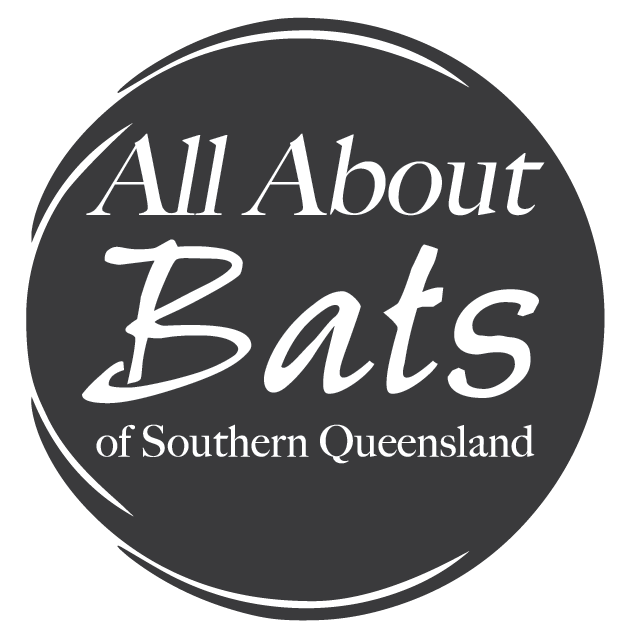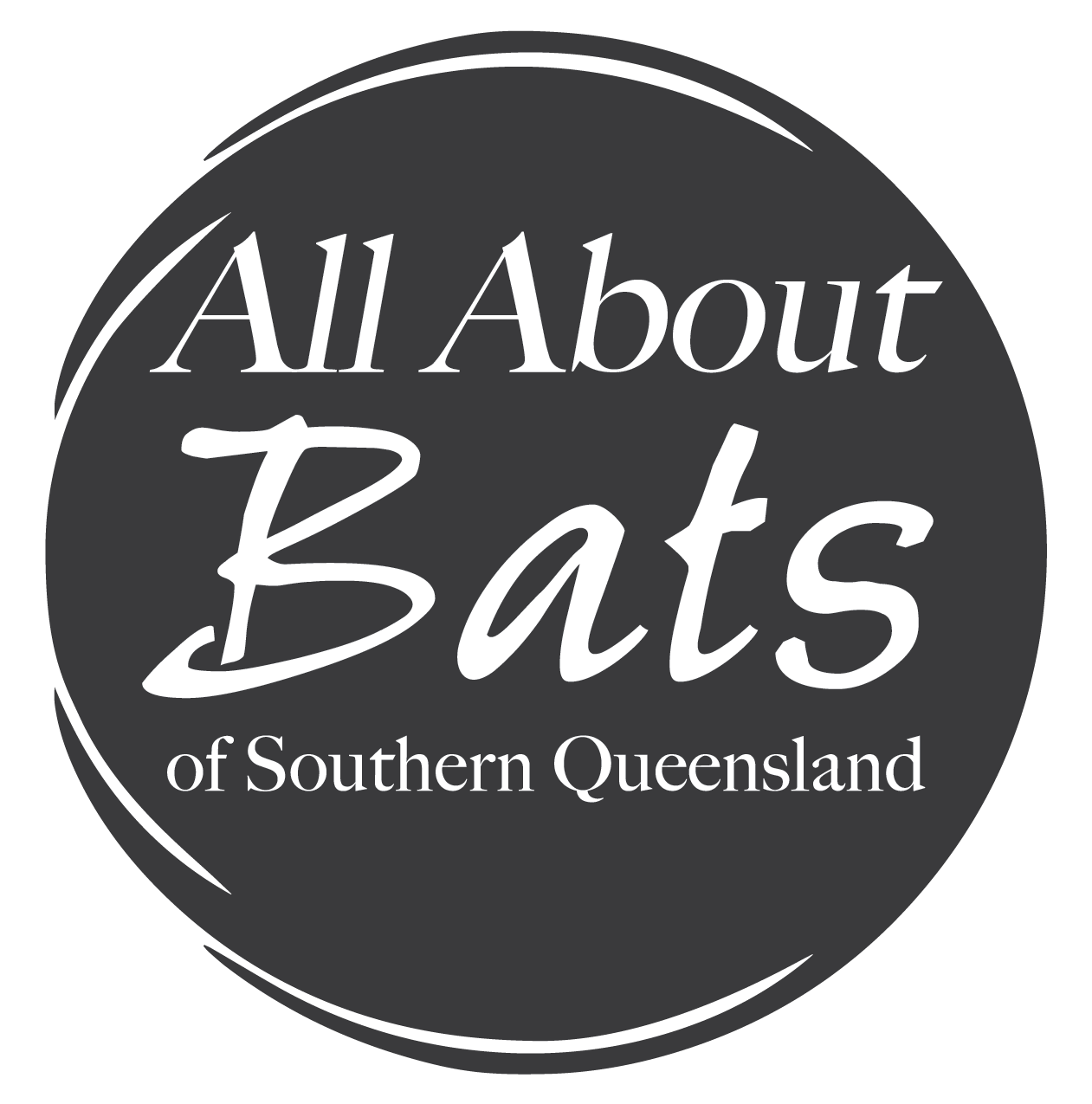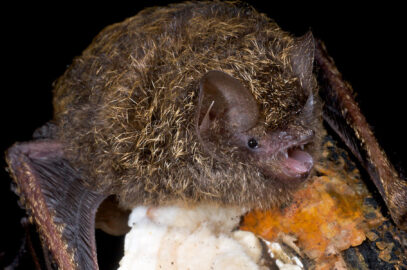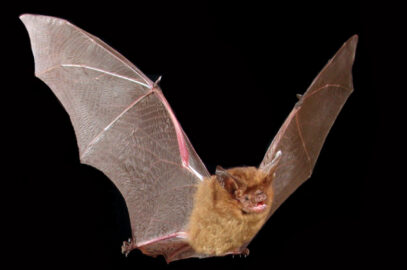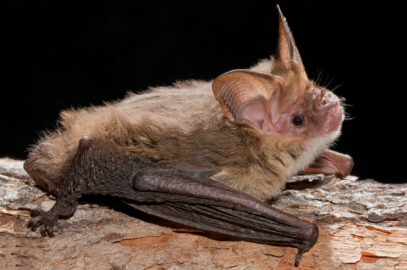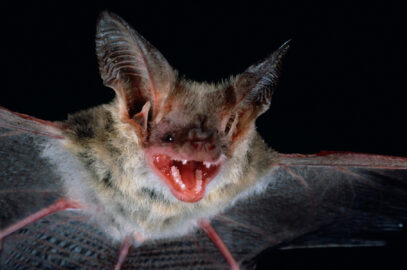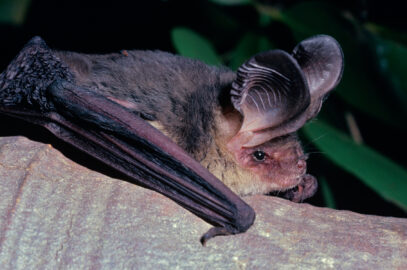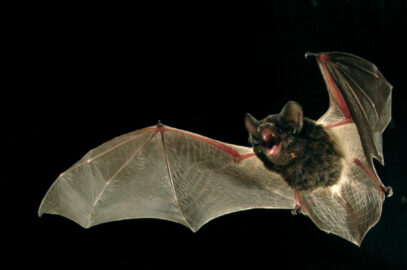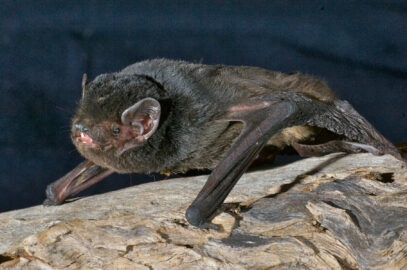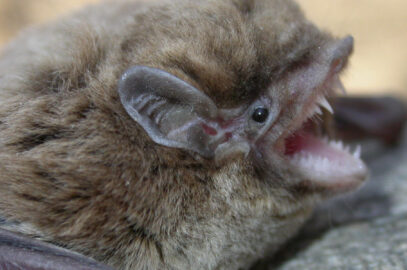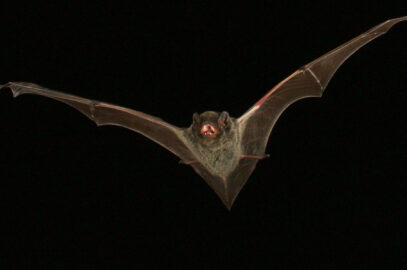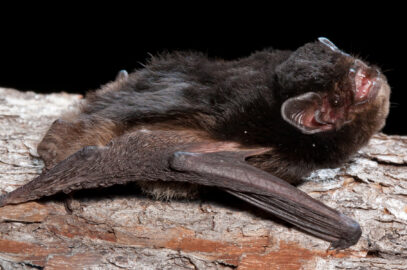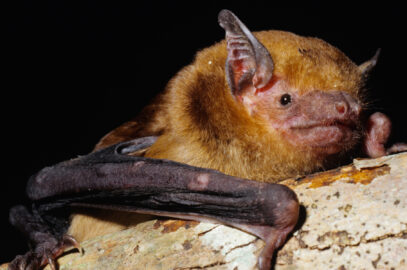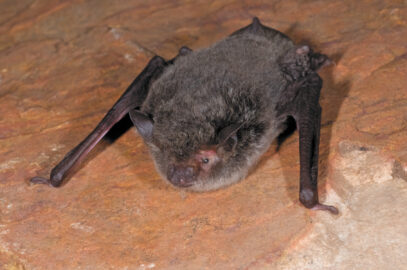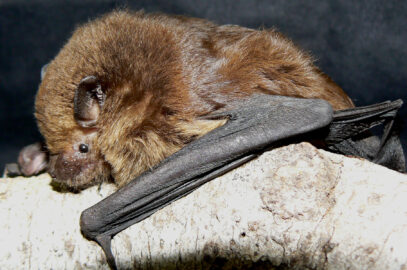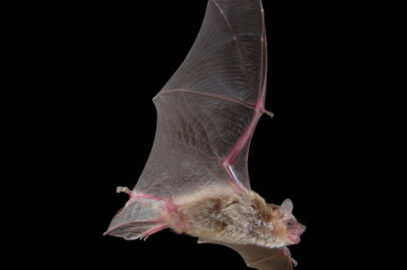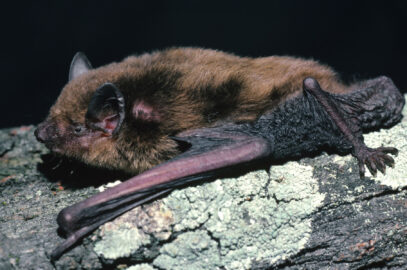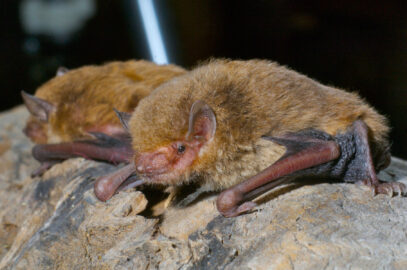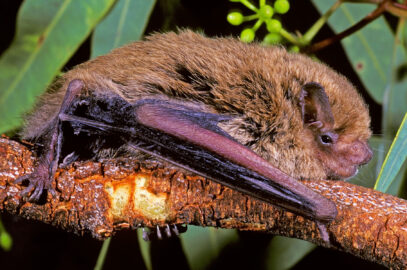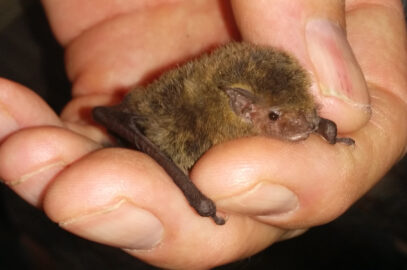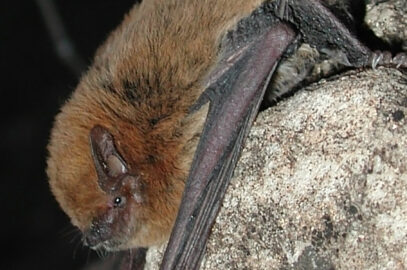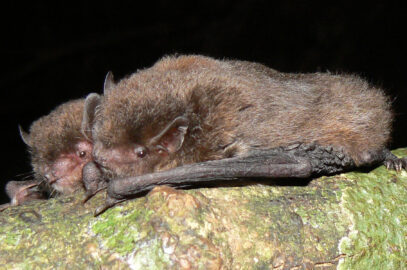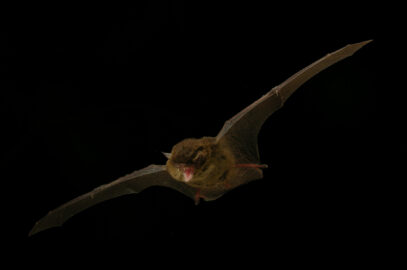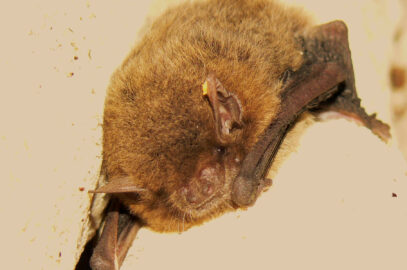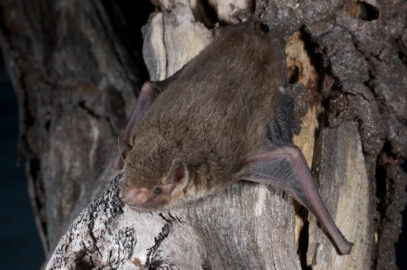Golden-tipped bat
Phoniscus papuensis This bat has woolly, dark brown fur with characteristic golden tips. The golden-tipped fur also sparsely covers the ears, forearms, thumbs and major wing bones. Read More
Eastern long-eared bat
Nyctophilus bifax This species is brown to tan in colour and has long ears from 19 to 27 mm. Its diagnostic feature is the low, rounded and hairless ridge on the muzzle behind the noseleaf. Read More
Corben’s Long-eared Bat
Nyctophilus corbeni This largely solitary grey-brown bat with ears about 3 cm long and larger than the head. Read More
Lesser long-eared bat
Nyctophilus geoffroyi This is the most common species of Nyctophilus in Australia. They have light grey, bicoloured fur (darker at the base) on their back and almost white fur on the belly. Read More
Gould’s long-eared bat
Nyctophilus gouldi The Gould’s long-eared bat has slate grey to brown fur on the back and ash grey on the belly. This species has longer ears than N. bifax bifax; Read More
Large-eared pied bat
Chalinolobus dwyeri This bat has glossy jet black fur all over with a white band down the sides where the wing membranes meet and form a V-shape where they join in the pubic region. Read More
Gould’s wattled bat
Chalinolobus gouldii The Goulds wattled bat can be found in every climatic zone in Australia. They have a covering of brown fur on the back that darkens to almost black on the head and shoulders. Read More
Chocolate wattled bat
Chalinolobus morio The chocolate wattled bat is so named for its uniformly milk-chocolate brown fur on its back and belly. They have a short muzzle with a steeply domed head. Read More
Hoary wattled bat
Chalinolobus nigrogriseus This bat has dark grey to black fur with white-tips to the hairs, which gives the distinctive frosted appearance. Read More
Little pied bat
Chalinolobus picatus This bat has glossy black fur on its back with a grey belly. There are two white stripes that run on the sides of the body and form a ‘V’ at the pubic... Read More
Eastern falsistrelle
Falsistrellus tasmaniensis One of the largest forest-dwelling bats in south-eastern Australia, this bat has dark brown to reddish brown fur on its back with a slightly paler belly. Read More
Large-footed myotis
Myotis macropus This species is one of Australia’s most fascinating bats as it is the only species of bat in Australia to capture fish for food. Read More
Greater broad-nosed bat
Scoteanax rueppellii The greater broad-nosed bat is a large bat with reddish brown to dark brown fur. Read More
Inland broad-nosed bat
Scotorepens balstoni This common species of microbat is about 50mm from head to tail with a mean wingspand of 278mm. Read More
Little broad-nosed bat
Scotorepens greyii The little broad-nosed bat has bicoloured brown to grey-brown fur that is lighter at the base than the tips. Read More
Eastern broad-nosed bat
Scotorepens orion This species is limited to the coastline East of the Great Dividing Range with individuals also been identified around Cairns. Read More
Inland forest bat
Vespadelus baverstocki This small bat, body length averaging 39mm and weighing about 4 grams, has light sandy brown to brownish grey fur on its back with a paler belly. Read More
Large forest bat
Vespadelus darlingtoni The large forest bat has dark brown to rusty brown fur all over that is slightly bicoloured (lighter at the tips). Read More
Finlayson’s cave bat
Vespadelus finlaysoni The Finlayson’s cave bat (also called the Inland cave bat) has black fur with the tips a paler shade of rusty-brown or yellow-brown that continues on the head, down to the muzzle. Read More
Eastern forest bat
Vespadelus pumilus The eastern forest bat has dark chocolate brown that is almost black at the base of the hairs. Its belly fur is longer and lighter in colour. Read More
Southern forest bat
Vespadelus regulus Weighing about 5 grams, this small bat has reddish brown to grey fur on it back that is disctinctly darker at the base. Read More
Eastern cave bat
Vespadelus troughtoni This bat has bicoloured fur that is light brown with ginger tips on it’s back and head while it belly fur is dark at the base with light fawn tips. Read More
Little forest bat
Vespadelus vulturnus One of the smallest mammals in Australia, this diminutive bat has bicoloured fur that is dark at the base and creamy white to grey at the tips Read More
